Note: This piece was originally posted back in 2011 but I have updated it and edited it to repost now because I feel it’s just as important now as it was then but needed a little updating!
If you’re old enough to remember the 80s and early 90s, you’ll probably remember the hoopla over single mothers and how awful they were. It seemed to come to a head with Murphy Brown, a TV character played by Candice Bergen who was going to become a single mom on TV by choice. This sent many people into a tailspin – the idea of even promoting single motherhood was just too much. And to be honest and fair, there were research studies demonstrating the numerous bad outcomes associated with single motherhood, which were taken to imply the overarching importance of dad. Yes, folks, to hear them say it, women just couldn’t be trusted to raise children on their own without male support.
Of course, they had research on their side. Research found, on average, that single mothers raised children that were not as well-adjusted as families with two parents (though of course there are single-parent families with incredibly well-adjusted children, but research speaks to averages). However, those who promoted this research seemed to forget that there were few single father households and even fewer two female same-sex parent households to offer comparisons. Luckily for us, some people did realize that and when you start to take that data into account, low and behold, we discover that single moms per se are not the problem. The problem is the lack of support a second person provides financially, emotionally, and practically. Research presented in Child Development found that single mothers with low-wage jobs who were provided with instrumental support from other people showed lower financial strain which led to better parenting quality and better child outcomes with respect to both behaviour and cognitive ability (Jackson, Brooks-Gunn, Huang, & Glassman, 2003). Furthermore, researchers from Harvard Medical School examined high-risk infants and randomly assigned half to receive weekly visits to provide mom with help. At 18 months, children in the weekly visits group scored higher on a measure of IQ, had mothers who were more involved, and were more than twice as likely to be securely attached to mom (Lyons-Ruth, Connell, Grunebaum, & Botein, 1990). Yet sadly, this debate over the efficacy of single moms rages on today because it’s easier to blame mom than it is to find a solution. But what should be talked about and discussed is that as long as there is someone willing to help out, and really help out, the ‘single’ aspect should mean less and less with respect to a child’s well-being. Of course, this also means that there really isn’t such a thing as the ‘single’ aspect anymore.
The financial help offered by a second parent is crucial to raising a child and I don’t imagine it’s debated anywhere. What is often ignored, and yet is key to being successful in parenting is having at least one person to help emotionally and practically. There is a reason that it takes two to tango, so to speak, and that evolutionarily, people have raised children in groups. Moms, during the first few months of your child’s life, you must make that baby your number one priority. Evolution has made it such that you are completely bonded and in sync with your baby. What you eat goes to them through breastmilk. Your voice, heartbeat, and breathing are all sounds that are immensely comforting to your baby – like no other person’s can be. Your baby will sleep much more soundly in your arms than anyone else’s. In evolutionary terms, it is mom who is central to baby’s first months.
Some partners don’t want to hear this, but unless people accept their roles in a baby’s life and relish them, it’s impossible for babies to have the best chance. In fact, some mothers don’t want to hear this either, but it’s true. Yes, we have shifted things in such a way that it is possible for a dad to do much of what a mother does in the early months, but if we’re honest and look at the data, it is not the same for the first few months. Breastfeeding alone is something that father’s can’t do and is what babies expect to have. Their food comes from a mother’s breast. Now, some moms can pump and provide breastmilk in that manner for dad to use, but even expressed breastmilk ranks second to breastmilk from the breast according to the World Health Organization. Co-sleeping is safest next to a breastfeeding mother, not a father, and not parents who are using formula. This is not to say that it can’t be done by a father, but that what an infant biologically expects for the fourth trimester is mom. (However, even when dad is the primary caregiver, he too needs support. He needs his partner to be there in a way that allows him to be the best primary caregiver he can be.)
Personally I believe it takes a incredibly secure and strong partner to acknowledge their rather superfluous role in the eyes of the babe and acknowledge that their immense value lies in supporting mom. I understand that a partner wants to bond immediately with his/her child, and you will bond. Fathers and other partners should be involved in smaller ways and will eventually build up to being equally important in the life of your child, but you have to realize that mom is the most important person to that baby and the best thing you can do for your child is to support your child’s mother. In our society we don’t have nurses to come and help out at home and make sure mom is getting the help she needs so it’s up to whomever the partner may be (husband, friend, family) to ensure that mom and baby are doing okay. And yet, for reasons I fail to understand, it seems that no one wants to take on this role. This means that moms often feel alone, isolated, overwhelmed, and yes, depressed.
In our society, the most common ‘help’ a mom can get is someone showing up to play with their baby to give mom time to do chores. Um… thanks? I’ve personally never met a mom at 3 weeks post-partum who was itching to do dishes and laundry, but that’s the “us” time we get. Did anyone ever think that perhaps mom would simply like some time to bond with her child? That what would be nice is a home-cooked meal not cooked by mom? If you know a new mother and want to help out, truly help. You’ll still get to cuddle with baby, but you’ll be much more appreciated if you also help mom out with some of those things she probably isn’t too keen to get back to. If you don’t want to do things like cook a meal for mom or help her with some laundry, don’t show up, or at the very least don’t expect huge thanks from new mom. Take the cuddles when you let mom go take a much-needed bath or shower to relax. My mother-in-law came to visit when my daughter was one month old (no one else was able to come out as my own mother had been hospitalized with a brain bleed while I was in labour and was banned from flying for a period) and was great. She took care of laundry, dishes, and general cleaning. It was the best visit I could have had. Instead of having someone else to take care of, I actually got to back off the bit that I had been doing and have it done for me. I will forever be indebted to her for that.
I also consider myself blessed to have a husband who took over most of these chores on a daily basis when my daughter was young. (Minus cleaning – best money we’ve ever spent was hiring a cleaning lady to come every two weeks. In fact, if you’re reading this and have a friend who’s due soon, get some friends together and buy her this service for 3 or 6 months for after baby is born. She will love you forever and you will automatically win the prize for best gift ever.) He cooked and did laundry and also spent time with our daughter. He held her when he could, giving me precious bits of time to shower and rest, but seeing as newborns are eating fairly constantly, I never really got more than 15-20 min or so at a time, but he also never tried to make it about his relationship with her. However, that bit of time did allow him to bond with her and it allowed me to be the best mom I could be. And with his time with our daughter, he focused on things that were just his (e.g., baby massage), ensuring his bonding with her happened as well. And as I work on this piece now, they are off fighting “monsters” upstairs together.
When we think of the benefits to mom and baby of having support and someone else there to help things along, the way in which things used to be makes sense. Raising children in groups provided each mom with all the support she could need. It may not have been the father that provided this assistance, as he was busy taking care of other things, but there were multiple other female caregivers there to help out. We’ve lost this idea today in favour of having women stay solitary during the raising of their kids. This solitary behavior coupled with practices like using strollers and baby entertainment centers have only made things harder. We need to return to the idea that mom simply can’t do it all. Nor should she be expected to. We may not have the extended networks we did, but at the very least, having someone available who supports mom during the transition from pregnant to mother is key, whether it be father, partner, parent, sister, or friend. As the old addage goes, “It takes a village to raise a child”. And I’ve never come across a village of one.
I would like to add here that I find single parents to be incredible. However, they are awe-inspiring and incredible BECAUSE the job is not meant for one person alone and the idea that they are able to do it all is astounding. But we all need support and we all should be supporting each other when we can. It’s hard in our society to get beyond this, especially because it’s become wrong to somehow even ask for help. We are expected to do things on our own and if we can’t, people see us as weak. It is not weak. It takes super-human strength, patience, and mental fortitude to parent alone. People can do it and do do it regularly. But that doesn’t mean they should *have* to do it.
References
Jackson, A.P., Brooks-Gunn, J., Huang, C., & Glassman, M. (2003). Single mothers in low-wage jobs: financial strain, parenting, and preschoolers’ outcomes. Child Development, 71, 1409-1423.
Lyons-Ruth, K., Connell, D.B., Grunebaum, H.U., & Botein, S. (1990). Infants at social risk: maternal depression and family support services as mediators of infant development and security of attachment. Child Development, 61, 85-98.

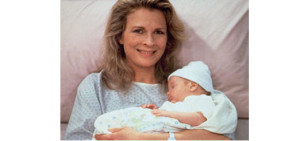

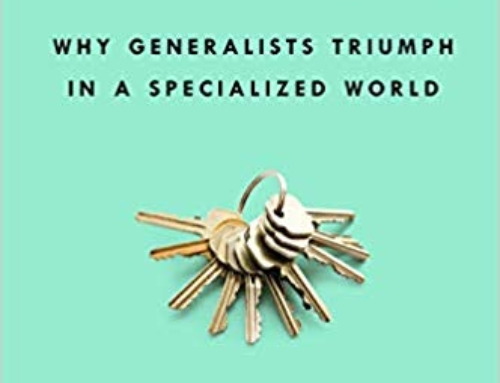
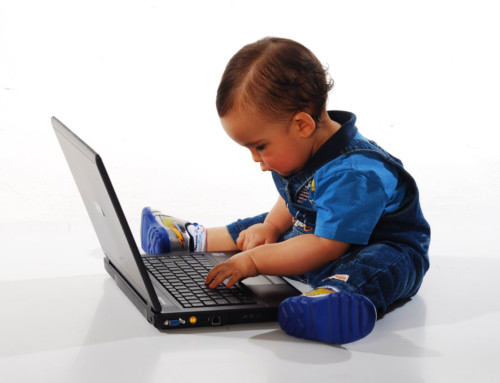
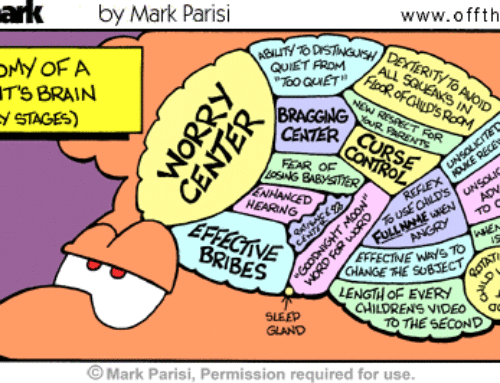
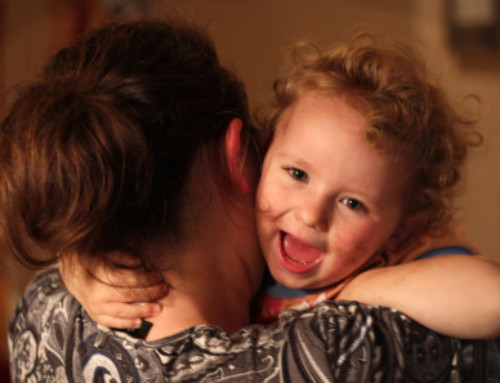
Not sure I buy this idea that the mother is more important to the newborn. In fact, I think that the physical demands of childbirth mean that the father may actually be more important.
Alice Miller was a famous psychologist who deconstructed the problem of narcissistic mothers who confuse their needs (often issues left over from the mothers’ childhood) with the child’s actual needs. These women have children in order to feel important, needed, etc. and create all sorts of narcissistic demands that others support and serve them (the mother, that is), rather than recognizing the baby’s needs (or allowing others, such as the father, to recognize and meet the baby’s needs, which may be more visible to him since he is not recovering from the physical exhaustion of childbirth).
Well, history and biology contradict what you say – we wouldn’t be having this discussion if women were unable to handle the needs of their babies after childbirth. In fact, traditionally, women and their babies hole up for a period to bond and rest after birth as they are indeed a dyad connected by more than just genetics. The child, after all, has only known his or her mother. I would ask how you feel the father is better served to provide food for the infant (historically and worldwide) when mom breastfeeds, comfort when we know infants respond most readily to mom’s voice, etc., but I won’t.
I also think you have a severely flawed view of Alice Miller’s work.
[…] is an incredibly crucial part of any healthy relationship. It goes way beyond agreement; after all, no two people see exactly eye […]